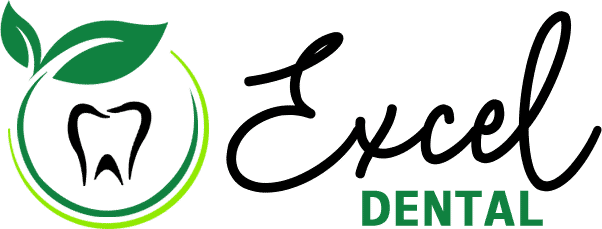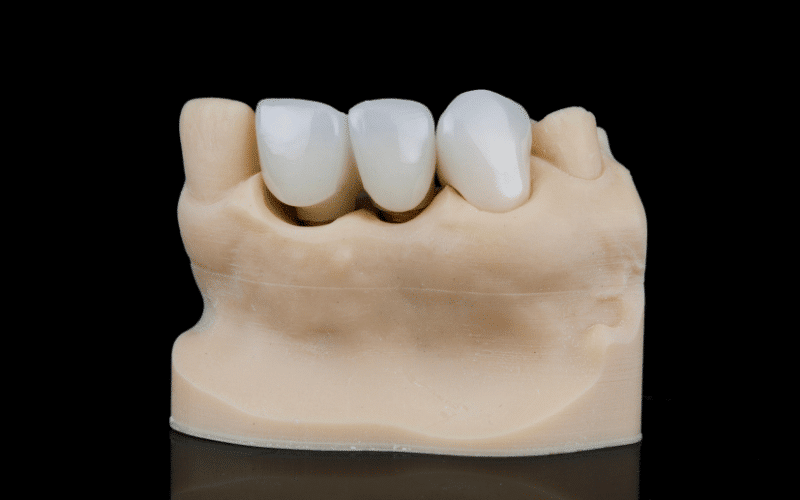Dental crowns are prosthetic devices placed over damaged or decayed teeth to restore their shape, size, strength, and appearance. They can also cover dental implants or hold dental bridges in place.
As people age, they may experience dental health changes, which could affect existing crowns. This may lead to concerns about discomfort or pain associated with crowns as one age.
In this blog, we will explore the factors contributing to potential discomfort with age, how to manage and prevent it, and tips for maintaining good oral health to prolong the lifespan of dental crowns. We’ll also discuss common misconceptions and provide practical advice for individuals considering or currently wearing dental crowns.
Can Dental Crowns Cause Pain?
Dental crowns themselves typically do not cause pain. However, discomfort may arise if the underlying tooth or surrounding gum tissue is irritated or infected. This can happen for various reasons, such as decay, improper crown fit, or gum disease. In rare cases, allergic reactions to materials used in the crown may occur.
It’s essential to address any discomfort promptly by consulting with a dentist. Properly fitted and maintained crowns should not cause pain, but underlying dental issues must be addressed to ensure comfort and oral health.
Reasons Why a Crowned Tooth Might Hurt
1. Underlying tooth decay or infection: If decay or infection develops beneath the crown, it can cause discomfort or pain. This can occur if the tooth needs to be adequately cleaned or prepared before the crown placement.
2. Improper placement of the crown: If the crown is not fitted correctly or has issues with its alignment, it can lead to discomfort. This may include uneven pressure on the surrounding teeth or irritation of the gum tissue.
3. Damaged crown: A crown can become damaged due to wear and tear, trauma, or biting on hard objects. Cracks, chips, or fractures in the crown can expose the underlying tooth structure and result in pain.
4. Gum recession exposing the root: Gum recession can occur over time, exposing the sensitive root surface of the tooth. If a crown does not adequately cover the exposed area, it can lead to discomfort, especially when consuming hot, cold, or acidic foods and drinks.
5. Teeth grinding (bruxism): Grinding or clenching the teeth, especially during sleep, can put excessive pressure on the crown and surrounding teeth, leading to pain and discomfort. This habit can also cause the crown to wear down prematurely.
Does Age Affect Dental Crown-Related Pain?
Age itself doesn’t necessarily make dental crowns hurt more. However, certain age-related factors can contribute to issues that may lead to discomfort with crowned teeth:
1. Increased risk of tooth decay or gum disease: As people age, they may be more prone to dental issues such as tooth decay or gum disease due to factors like changes in saliva composition, medications, or medical conditions. If these conditions affect the teeth under the crown, it can lead to pain or discomfort.
2. Crowns placed many years ago might be nearing the end of their lifespan: Dental crowns are durable but may not last indefinitely. Over time, wear and tear can cause the crown to deteriorate, leading to cracks, fractures, or loosening. If crowns placed many years ago are nearing the end of their lifespan, they may need to be replaced to prevent discomfort or complications.
3. Changes in bite or jawbone density: Aging can also bring about changes in the bite or density of the jawbone. This may result in altered pressure distribution on the teeth and dental work, potentially causing discomfort or pain associated with crowns.
While age itself doesn’t directly cause crown-related pain, these age-related factors can contribute to issues that may affect the comfort and longevity of dental crowns. Regular dental check-ups and proper oral hygiene are essential for maintaining the health of crowned teeth, especially as one ages.
Tips To Prevent Dental Crown-Related Pain
Preventing crown-related pain is essential for maintaining oral health and comfort. Here are some key strategies:
1. Good oral hygiene: Brushing and flossing regularly are crucial for preventing decay and gum disease, which can affect the teeth under the crown. Proper oral hygiene helps maintain the health of the surrounding teeth and gums, reducing the risk of pain or discomfort.
2. Regular dental checkups and cleanings: Routine dental visits allow your dentist to monitor the condition of your crowns and address any issues promptly. Professional cleanings help remove plaque and tartar buildup, which can contribute to gum disease and other dental problems.
3. Address concerns promptly: If you experience any discomfort, sensitivity, or changes in your crowned tooth, don’t ignore them. Contact your dentist as soon as possible to have the issue evaluated and addressed before it worsens.
4. Wear a mouthguard if you grind your teeth: Teeth grinding (bruxism) can put excessive pressure on dental crowns and lead to damage or discomfort. Wearing a custom-fitted mouthguard while sleeping can help protect your teeth and dental work from bruxism.
Final Words!
In conclusion, dental crowns are a durable and effective restoration option for damaged or decayed teeth. While age-related factors may contribute to issues with crowned teeth, pain or discomfort is more likely due to underlying dental problems or improper care rather than age itself.
It’s crucial to prioritize preventive care, including good oral hygiene, regular dental checkups, and addressing any concerns promptly to ensure the longevity and comfort of your dental crowns.
If you have any concerns or questions about your crowns, don’t hesitate to schedule a dental checkup with your dentist. They can assess their condition and guide you in maintaining optimal oral health. Remember, proactive care is key to enjoying long-lasting, comfortable dental crowns.


